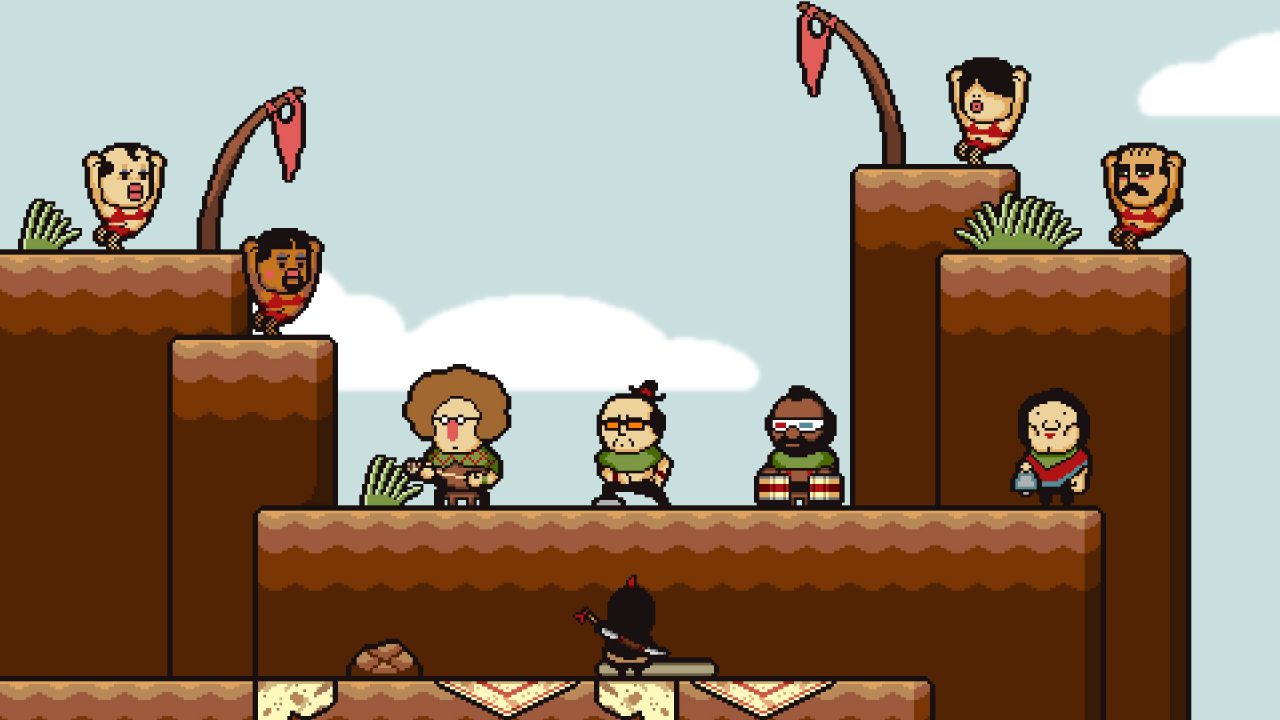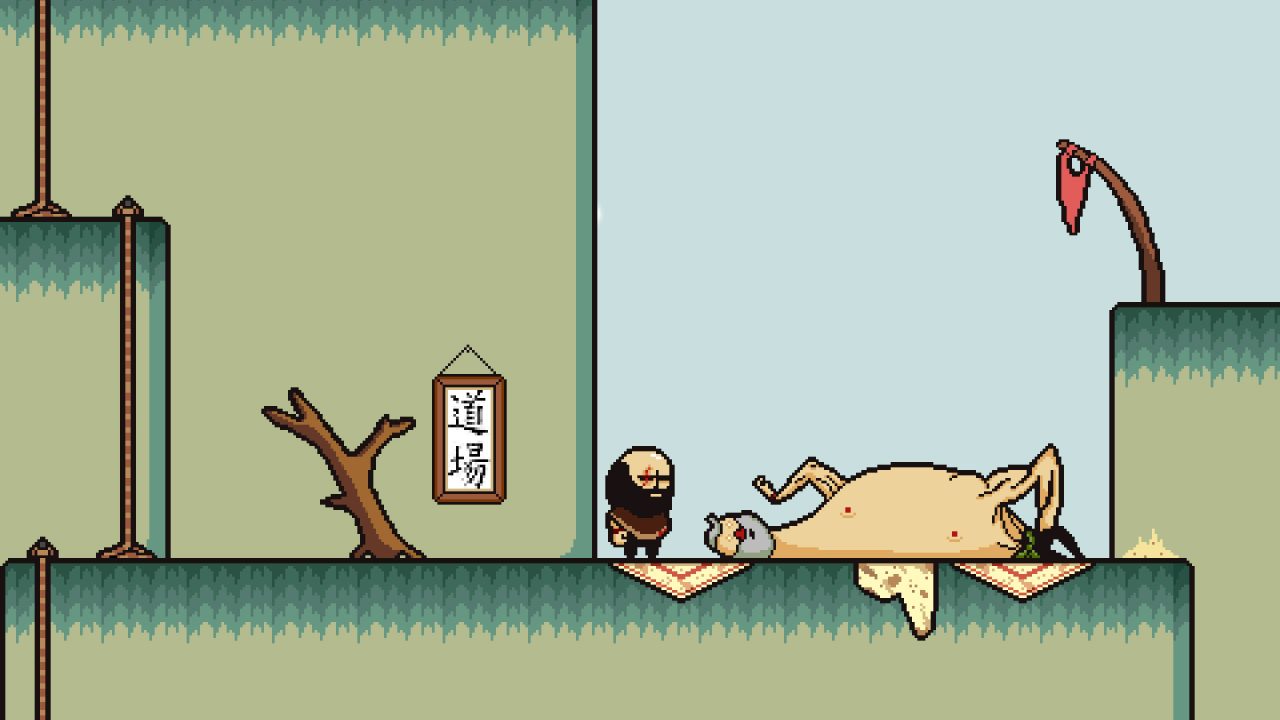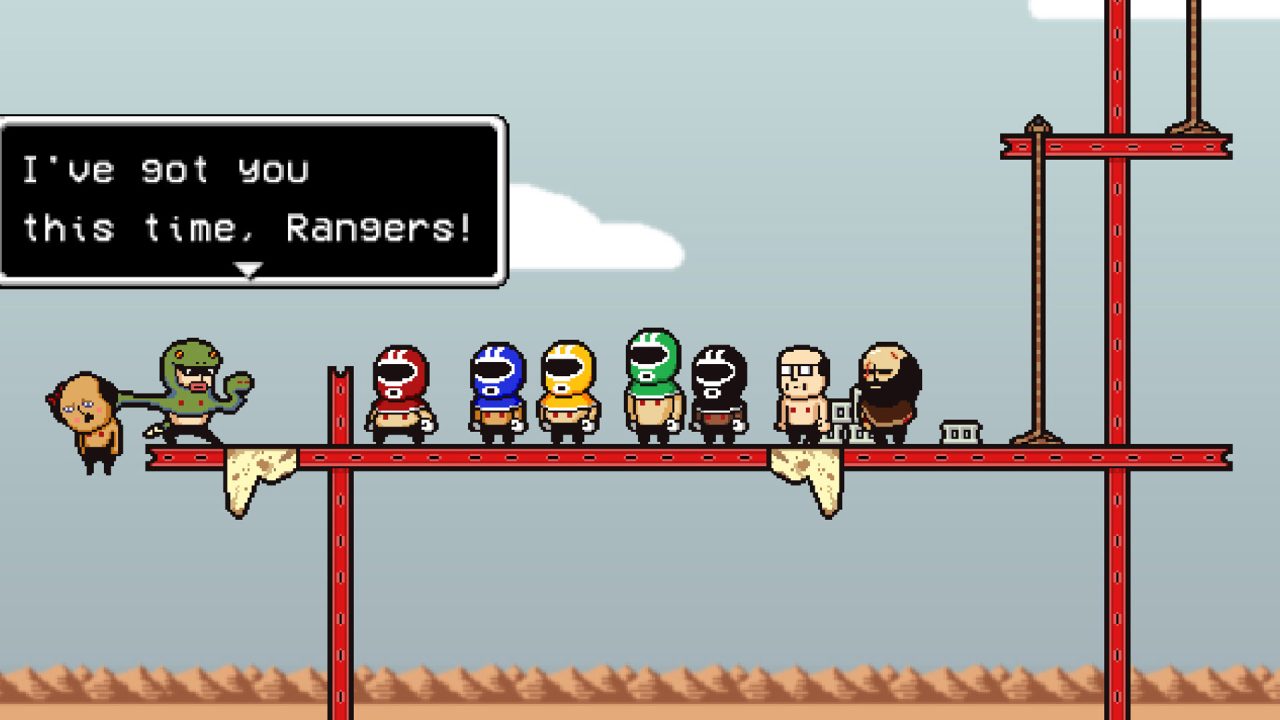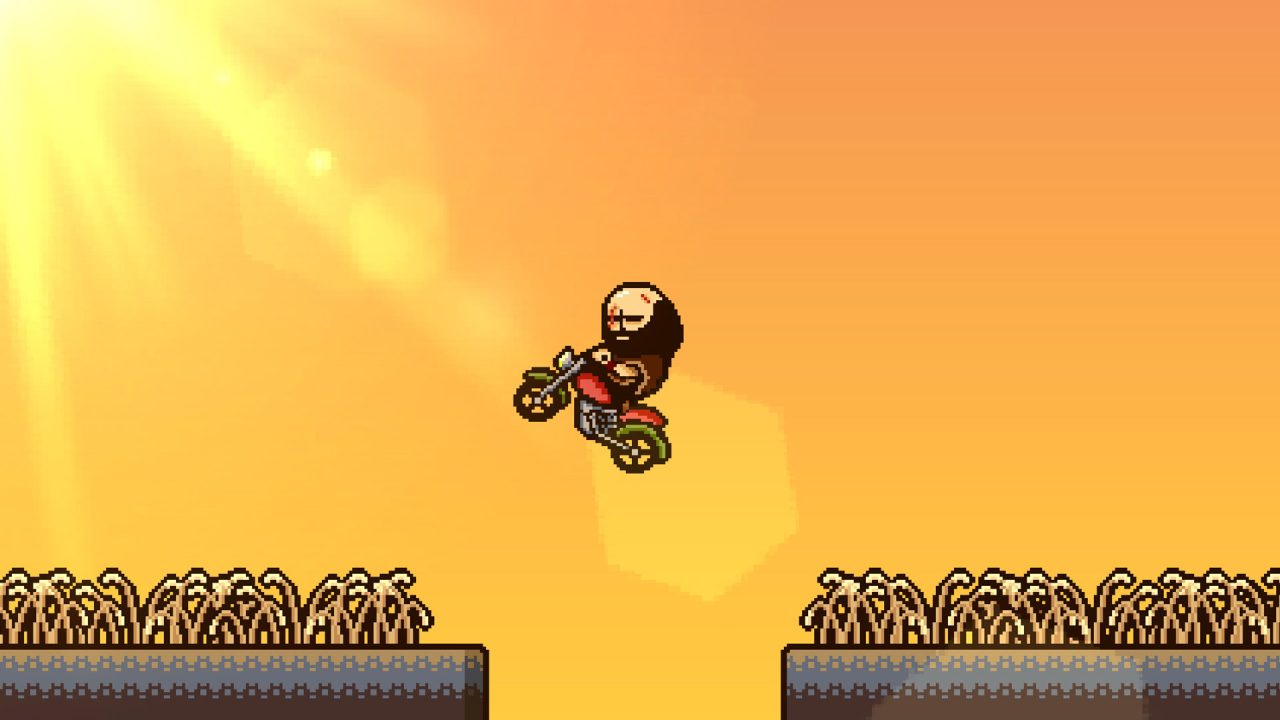LISA: The Painful was released in December 2014 with a follow-up DLC episode, LISA: The Joyful the following year. Both games take place in the town of Olathe following an event called the “White Flash,” discussing brutal themes such as generational trauma and toxic masculinity. Made entirely in RPG Maker, until now, LISA: The Painful and LISA: The Joyful were only available on PC via Steam and itch.io. LISA: Definitive Edition boasts HD graphics, an updated UI, HD rumble functionality, new stories, new songs, Painless mode, and a whole bunch of other stuff but the big thing for me is console support. LISA: Definitive Edition brings LISA: The Painful and LISA: The Joyful to all modern consoles and will also be a free upgrade for those who already own the game on Steam. As a PlayStation trophy hunter and someone who generally prefers to play games on consoles, this is an exciting release for me.
While I enjoyed another victory lap through Olathe, I ran into my first issue with LISA: Definitive Edition. One of the new features is fireside chats with your party members. When you rest at a campsite, your companions occasionally wake you up with something to tell you about themselves or Olathe. Unfortunately, using a campfire also runs the risk of one of your companions getting kidnapped by a local gang, requiring you to seek out their gang lair and pay a ransom or fight to rescue your companion. Worldbuilding and character development are stuck behind a game mechanic you’re actively taught to avoid. Even playing in Painless mode — the “story mode” — does not prevent your companions from being kidnapped.

These design decisions are fine and reminiscent of the original game. As a result, it seems nothing has fundamentally changed from the original design, but it’s kind of a bummer that I was missing out on this extra content for fear of losing companions. Other new features are nice additions, however. One issue with the version of RPG Maker that LISA was originally developed in is that the game is stuck at a 4:3 aspect ratio. While LISA: Definitive Edition does not change that, it has a seriously impressive amount of border art that changes with the location you’re currently visiting. The game also includes options for instant and autoplay text and dialogue size, which are big improvements over the original.
Playing through LISA again was a lot of fun despite the heavy content happening on screen and in the game’s themes. In LISA: The Painful, you play as Brad Armstrong, a guy with some significant dad trauma living in the post-apocalyptic world of Olathe. After the “White Flash,” all women mysteriously died, naturally causing all hell to break loose. One day on a walk, Brad happens upon a baby and discovers, upon bringing it back home to his friends, that the baby is a girl. While Brad’s friends suggest handing the girl over to one of the local warlords, Brad instead sees this as his “second chance” and chooses to adopt the girl and raise her as his own.
The scenes that follow are a mix of heartwarming and heartbreaking, showing fun family memories of Brad and his friends helping raise the girl he named “Buddy” and turning his home into a more acceptable place for her to live in secret. These scenes are contrasted with scenes of Brad’s emotional trauma getting the better of him and having him retreat to a drug known as “Joy,” which is supposed to help you feel nothing. Brad tries quitting Joy several times but ultimately cannot kick the habit. Being unable to keep the lid on Buddy’s existence forever, one day, Brad returns home to find his friend beaten and Buddy missing. Brad then goes on what can only be described as a singular-focused rampage through Olathe to get Buddy back.

Unfortunately, the one question Brad never asked himself or Buddy is whether she wanted to be rescued. And that’s the rub; despite being a minor, Brad has completely robbed Buddy of all agency, and that’s the one thing she cherishes at this moment. See, despite Dingaling Productions’ name and some of the crass humor throughout the game, LISA is primarily about a man ignoring a woman’s cries to simply make her own decisions. We see Brad force Buddy to wear a mask and poncho before she’s allowed out of the house. Brad’s mantra, one he repeats throughout the game, is that he wants to protect Buddy and keep her safe. It’s not a good look, Brad.
I like to think the game is aimed at precisely the crowd that needs to hear that type of message. Though these themes are discussed, it sounds like they’re being discussed through the lens of a frat boy. The dialogue features a lot of cursing and extremely aggressive behavior, the game features no shortage of blood, and one boss’ last words are that they “did it all for the nookie.” Instead of feeling like you’re following the themes intended, it makes you wonder if they were intended in the first place. I believe they were intentional, but I can understand why someone would think otherwise. LISA is quite crass. And the reality is, though this game touches on those heavy themes, it’s still rife with fish people, luchadors, karate masters, and Power Rangers.

I won’t talk about LISA: The Joyful from a narrative perspective solely because it’s a direct follow-up to LISA: The Painful, and any information would be heavy spoiler territory for the first game. That said, I find Joyful to be an enjoyable follow-up in terms of gameplay, but I was quite grateful that the game introduced Painless mode LISA: The Painful has some characters, including our protagonist, Brad, use button combos to perform special attacks. In LISA: The Joyful, the focus is more on timed hits, which I struggle with. By the end of the game, I was nailing them pretty consistently, but I would never have made it that far without Painless mode, at least not in time to get this review out.
No review could do LISA: Definitive Edition justice without discussing the soundtrack. Composed by Widdly 2 Diddly — which is just another moniker for LISA‘s creator Austin Jorgensen — is a triumph. An OST I regularly have in my rotation was already worth the price of admission, but now has over 20 new songs, totaling almost 130 tracks. Included is a follow-up to one of my favorite tracks, “Work Harder,” named “Work Smarter.” In an AMA on the /r/Games subreddit on Reddit.com, Austin confirmed he composed the entirety of LISA: The Painful‘s soundtrack on the trial version of FL Studio (previously known as FruityLoops.)

While I’m ultimately disappointed by a few of the newer features LISA: Definitive Edition boasts, I’m overall pleased with the finished product. The border art, new songs, Painless mode, text scaling, and more are all incredible quality-of-life improvements to an already great game. Adding extra dialogue, endings, and enemies is just RPG gravy. LISA: Definitive Edition takes a game I’d already recommend playing and makes it that much more accessible.


